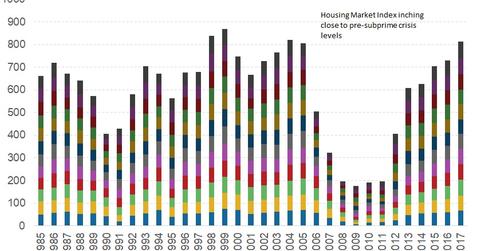Can the US Dollar Gain Back Lost Ground This Week?
The US Dollar index (UUP) failed to capitalize last week on the optimism from Congress passing the US tax reform bill.
Dec. 26 2017, Updated 12:15 p.m. ET

US dollar lost ground last week
The US Dollar index (UUP) failed to capitalize last week on the optimism from Congress passing the US tax reform bill. Appreciation for the dollar was limited compared to the equity and bond markets. The foreign exchange markets typically react aggressively to any surprising news, but the tax reform bill seems to have been priced in already, limiting any spectacular gains in the US dollar. The passing of a temporary spending bill by Congress was positive news for the dollar, but that news only offered support for the US dollar. For the week ended December 22, the US dollar index closed at 92.9 compared to 93.9 in the previous week, falling 1.1%.
Speculators added bullish bets on the US dollar
According to the COT (Commitment of Traders) report released on December 22, 2017, by the CFTC (Chicago Futures Trading Commission), large speculators turned bullish on the US dollar through Tuesday, December 19. That’s the first time speculators have turned bullish in more than four months.
According to Reuters calculations, the US dollar’s (USDU) net short positions fell to -$2.2 billion compared to -$5.6 billion in the previous week. That amount is a combination of US dollar contracts against the combined contracts of the euro (FXE), the British pound (FXB), the Japanese yen (FXY), the Australian dollar (FXA), the Canadian dollar (FXC), and the Swiss franc.
Outlook for the US dollar
For the US dollar, there are no major economic events this week. Consumer confidence, pending home sales, and Chicago PMI (Purchasing Managers’ Index) data are expected to be positive. But they’re not expected to have any major impact on the US dollar. Trading activity in foreign exchange markets is usually quiet in the last week of the year. Price action could be sideways as we head into the new year.
In the next part of this series, we’ll see how bond market investors reacted to the tax reform bill and the temporary spending bill.
